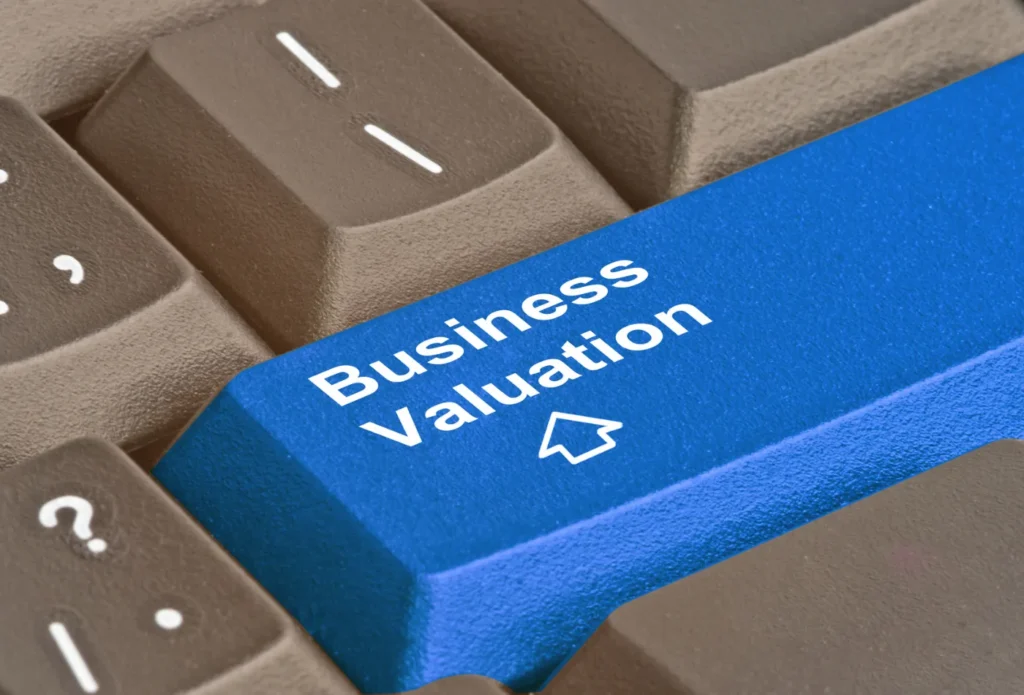In the ever-evolving realm of e-commerce, where businesses rise and fall at the click of a button, accurately determining an online venture’s worth is paramount. This valuation process goes beyond mere dollar signs; it’s an intricate dance between financial performance, market forces, and the intangible assets that make a digital enterprise tick. This comprehensive guide empowers you to navigate the complexities of online business valuation, equipping you with the knowledge to make informed decisions as a buyer, seller, or curious investor.
Unveiling the Valuation Enigma: Understanding Business Valuation
Business valuation, at its core, is the art of determining the economic worth of a company. When applied to the unique ecosystem of online businesses, it delves into a treasure trove of factors beyond traditional brick-and-mortar metrics. Here, website traffic, the lifeblood of any e-commerce venture, takes center stage, alongside revenue streams, customer databases, intellectual property (IP), and the ever-shifting tides of the digital marketplace. Unlike their physical counterparts, online businesses often boast intangible assets that hold immense value – a loyal social media following, a meticulously crafted brand identity, or cutting-edge proprietary technology. These elements, alongside more traditional financial metrics, contribute to the intricate tapestry that is online business valuation.
A Multifaceted Lens: Factors Influencing Valuation
The valuation of an online business is a symphony of interwoven factors, each playing a distinct role in determining its worth:
- The Financial Orchestra: Revenue and Profitability
The financial performance of the business acts as the conductor, setting the pace for valuation. Consistent revenue growth, healthy profit margins, and recurring revenue streams paint a picture of stability and future potential, attracting higher valuations. A business demonstrating consistent profitability through subscriptions, product sales, or advertising partnerships signifies a reliable source of income for potential investors.
- Market Maestro: Trends and Industry Outlook
The market landscape and industry trends serve as the backdrop, influencing the perceived value of the business. Is the industry experiencing explosive growth, or is it on the cusp of disruption? Understanding these dynamics is crucial. A business operating in a rapidly growing market with minimal competition commands a higher valuation due to its immense potential. Conversely, a business in a saturated or declining market might see its valuation dampened.
- The Customer Chorus: Customer Base and Retention
A loyal and engaged customer base acts as the vocal powerhouse, amplifying the value proposition. The size, diversity, and retention rate of the customer base significantly impact valuation. A large and engaged customer following translates to a predictable revenue stream and a strong foundation for future growth. Businesses with a niche audience or a high customer lifetime value (CLTV) are particularly attractive to potential buyers.
- The Intellectual Property Ensemble: Assets and Innovation
Intellectual property (IP) takes center stage as a valuable asset class. Patents, trademarks, copyrights, and proprietary technology all contribute to the overall value of the business. Strong IP safeguards a company’s competitive edge and protects its market position. A business with a robust portfolio of IP assets is likely to command a higher valuation than one with minimal intellectual property protection.
- The Operational Efficiency Band: Scalability and Streamlining
Efficient operations and a scalable business model act as the rhythm section, ensuring the business can grow without compromising profitability. Streamlined processes, minimal overhead costs, and a readily scalable infrastructure all contribute to a higher valuation. A business that can easily accommodate increased customer traffic and sales volume without incurring significant additional expenses is a valuable asset for any potential buyer.
A Methodical Approach: Common Valuation Techniques
Several well-established valuation methods serve as tools to determine the value of an online business:
- The Income Approach: The Song of Future Cash Flows
The income approach focuses on the present value of the business’s projected future cash flows. Discounted Cash Flow (DCF) analysis, a popular income approach method, estimates the net present value (NPV) of the business’s anticipated earnings, essentially translating the melody of future profits into a single, present-day value.
- The Market Approach: Benchmarking Against Peers
The market approach compares the business to similar companies that have recently been acquired or are publicly traded. Comparable transactions serve as benchmarks, providing a valuation range based on multiples of revenue, earnings, or user base. This approach works best when there are a sufficient number of similar businesses available for comparison.
- The Asset-Based Approach: Taking Stock of Value
The asset-based approach calculates the business’s value based on the sum of its tangible and intangible assets. This includes equipment, inventory, intellectual property, and even brand reputation, often referred to as goodwill. While this approach offers a snapshot of the business’s inherent value, it might not fully capture the potential for future growth or market demand.
The Art of the Deal: The Role of Valuation in Pricing
Valuation serves as the compass, guiding both buyers and sellers towards a fair and informed transaction in the ever-changing digital marketplace:
- Setting the Stage: Establishing a Realistic Asking Price
For sellers, valuation empowers them to establish a competitive asking price that reflects the true worth of their online business. A well-researched valuation, considering all relevant factors, ensures the asking price aligns with market demand and attracts serious buyers. An inflated price tag might deter potential buyers, while an undervalue leaves money on the table.
- Negotiating with Confidence: Due Diligence and Informed Decisions
Buyers leverage valuation to assess the fairness of the asking price during negotiations. Armed with a valuation report and the insights gleaned from due diligence, buyers can negotiate terms that account for the business’s financial health, growth potential, and any identified risks. Valuation empowers buyers to make informed decisions and avoid overpaying for an online venture.
- Financial Foresight: Planning Investments and Optimizing Returns
Valuation plays a pivotal role in financial planning and investment decisions. For potential buyers, valuation insights inform decisions regarding return on investment (ROI) and the feasibility of financing the acquisition. Understanding the projected value of the business allows investors to develop a strategic roadmap for maximizing returns.
The Valuation Orchestra: The Importance of Professional Expertise
Seeking professional valuation services from qualified experts is akin to hiring a virtuoso conductor to lead the valuation orchestra. These experts ensure an objective assessment based on industry standards, best practices, and a deep understanding of the online business landscape.
- A Symphony of Expertise:
Professional valuators bring a wealth of knowledge and experience to the table. They possess the skills to analyze complex financial data, understand market trends, and identify the true value of tangible and intangible assets.
- Composing a Comprehensive Report:
Professional valuation services culminate in a detailed report that serves as the sheet music for informed decision-making. This report outlines the valuation methodology employed, provides a breakdown of the business’s financial performance, and offers insights into market trends and potential risks.
- Market Intelligence and Guidance:
Valuation professionals leverage their market knowledge to provide valuable guidance throughout the transaction process. They can assist with identifying comparable businesses, understanding industry benchmarks, and navigating the complexities of negotiation.
Buy and Sell Online Businesses on Macbook Monster
Access expert support, insider tips, and powerful resources to help buyers and sellers succeed. Get the assistance you need today!
The Final Encore: Conclusion
In the dynamic world of online business, valuation plays a critical role in determining a fair and sustainable price for a digital venture. By understanding the key factors that influence valuation, the various methodologies employed, and the importance of professional expertise, stakeholders can navigate the complexities of the marketplace with confidence. This comprehensive guide empowers you to make informed decisions as a buyer, seller, or curious investor, ensuring a harmonious and successful outcome in the ever-evolving digital landscape.
Beyond the technical aspects of valuation, remember that the human element also plays a part in the equation. Building trust and fostering open communication with the other party are essential for a successful transaction. Valuation serves as a powerful tool, but it should be used in conjunction with a collaborative approach to achieve a win-win situation for both parties involved.







